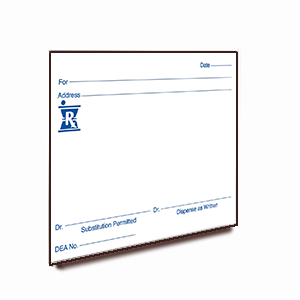Higher Conflict and Controversy: A blog series on medical and recreational marijuana in the workplace – PART 3
I had the privilege to speak in April 2013 at the Washington Self-Insurers Association’s Annual Meeting[1] and in November 2014 at the Oregon Workers’ Compensation Educational Conference regarding[2] legalization of medical and recreational marijuana in the Pacific Northwest workplace. This blog is the third in a series of articles based upon my presentations.
Federal enforcement guidelines
U.S. Department of Justice
 The U.S. Department of Justice (DOJ) has issued at least four memoranda to all United States Attorneys to provide guidance regarding enforcement of the CSA and federal marijuana laws. In October 2009 and June 2011, the DOJ noted “Congress determined marijuana is a dangerous drug and its illegal distribution is a serious crime.” The DOJ expressed its commitment to the enforcement of the CSA, but declared the individual user is not high priority for prosecution.
The U.S. Department of Justice (DOJ) has issued at least four memoranda to all United States Attorneys to provide guidance regarding enforcement of the CSA and federal marijuana laws. In October 2009 and June 2011, the DOJ noted “Congress determined marijuana is a dangerous drug and its illegal distribution is a serious crime.” The DOJ expressed its commitment to the enforcement of the CSA, but declared the individual user is not high priority for prosecution.
On August 29, 2013, the DOJ provided updated guidance to its attorneys in light of various state ballot initiatives that legalized marijuana. The DOJ expressed its expectation that states and local governments that legalize marijuana will implement strong, robust enforcement regulations to prevent:
- Distribution to minors;
- Marijuana sale revenue to support criminal enterprises, gangs and cartels;
- Diversion of marijuana to a state where its use remains illegal;
- State-approved activity for use as a cover for trafficking or other illegal activity;
- Violence and use of firearms in marijuana cultivation and distribution; and
- Growth and possession of marijuana on federal property.
On February 14, 2014, the DOJ reiterated its enforcement and prosecution priorities. The DOJ then encouraged U.S. Attorneys to prosecute individuals or financial institutions for money-laundering as appropriate when the above-listed priorities have been violated.
Court decisions on marijuana: medical prescription vs. recommendation 
Nearly ten years ago, the U.S. Supreme Court in Gonzales v. Raich[3] addressed the federal ban on marijuana. The nation’s highest court[4] upheld the federal legislative prohibition for a physician to prescribe marijuana under the CSA. The Supreme Court declared the federal government has the constitutional authority to prohibit marijuana for all purposes.
 Though a physician cannot legally prescribe marijuana, at least one federal judge has declared a doctor may recommend use of marijuana. In Conant v. McCaffrey[5] the U.S. District Court in California acknowledged the federal Drug Enforcement Administration has the authority to enforce the CSA and revoke the license of a physician who prescribes marijuana. The Court, however, declared a doctor may recommend patient use of marijuana as speech protected under the First Amendment of the U.S. Constitution.
Though a physician cannot legally prescribe marijuana, at least one federal judge has declared a doctor may recommend use of marijuana. In Conant v. McCaffrey[5] the U.S. District Court in California acknowledged the federal Drug Enforcement Administration has the authority to enforce the CSA and revoke the license of a physician who prescribes marijuana. The Court, however, declared a doctor may recommend patient use of marijuana as speech protected under the First Amendment of the U.S. Constitution.
The prescribe vs. recommend distinction explains why a medical doctor does not use a prescription pad for a patient to obtain marijuana from a pharmacist. Instead, the physician documents the recommendation for a state-issued medical marijuana card, which may protect the patient from civil or criminal penalties for limited possession in jurisdictions where medical marijuana is allowed.
Next blog post: Marijuana in the workplace
[1] High Conflict and Controversy: Medical and Recreational Marijuana in Washington, WSIA Annual Meeting, Wenatchee (May 9, 2013)
